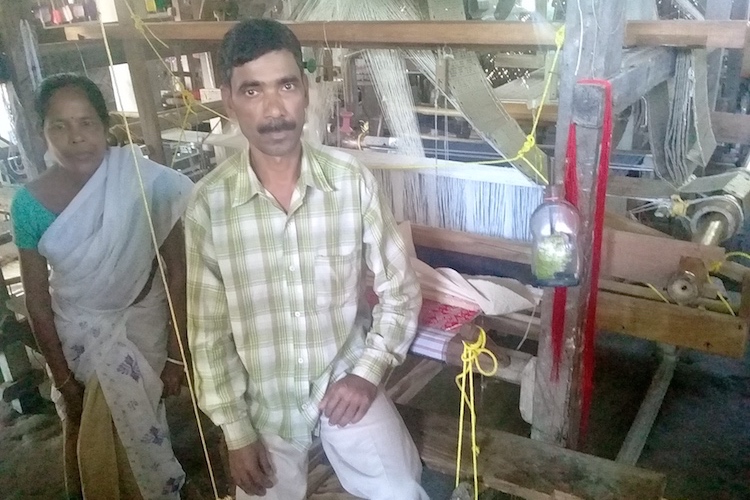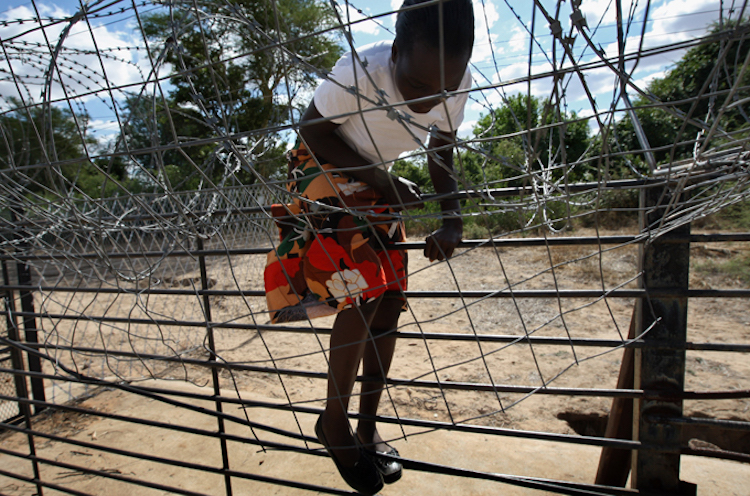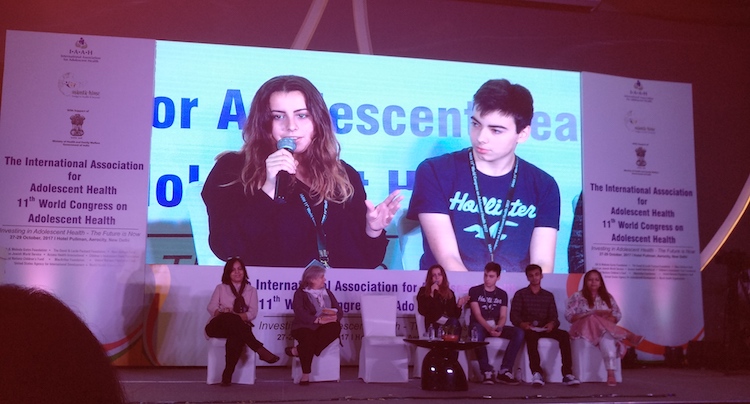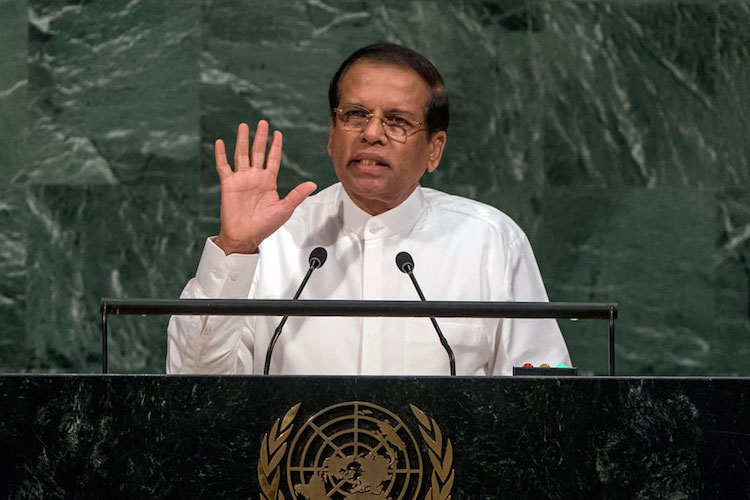By Kalinga Seneviratne SUALKUCHI, Assam, India (IDN) – Silk weaving is an intrinsic part of Assamese culture and the “weavers’ village” of Sualkuchi is famous for its silk products, especially the Muga silk made from the golden thread of the assama caterpillar. Situated about 30 km from Gauhati, the state capital, tourist brochures describe this […]
Opposition Calls for International Solidarity with Eritrea After Rare Protest
By Wim Brummelman
Note: This report, based on an interview with a representative of the opposition Freedom Friday (‘Arbi Harnet’) in Asmara, Eritrea, was first published in the Dutch newspaper NRC on 7 November 2017. Following is its unofficial translation by Klara Smits. – The Editor.
AMSTERDAM (IDN-INPS | NRC) – The banned Eritrean opposition is asking the international community to pay attention to the continuing repression in Eritrea. “Foreign countries must send observers to find out what is happening here,” said an opposition member speaking over the phone from the Eritrea’s capital city Asmara.
Rescue Operation in Mediterranean Fails to Save African Teenage Girls
By Lisa Vives, Global Information Network
NEW YORK | ROME (IDN) – Shivering immigrants pulled from icy Mediterranean waters huddled under aid workers’ blankets hardly move the hearts of wealthy nationals in developed countries these days.
But the story of 26 young African women whose bodies were recovered near a smuggler’s boatload of migrants caused some heads to turn and tears to fall.
Their bodies were plucked from the sea on November 5 in one of four separate rescue operations that brought 400 people to the Italian port town of Salerno.
Charities Facing Closer Scrutiny over Sex Harassment and Graft Claims
By Lisa Vives, Global Information Network
NEW YORK (IDN) – Two well-known charities are responding to serious claims of misappropriation of money and sexual harassment during their work in Africa.
In one investigation by the Associated Press, the Red Cross was cited for faulty oversight of workers who may have stolen millions of dollars meant to combat the Ebola outbreak in West Africa.
The deadly Ebola virus that spread throughout West Africa from 2014 to 2016 killed more than 11,000 people and drew numerous aid workers and medical professionals to the continent. Some of those responders, according to a Red Cross internal investigation covered by AP, fraudulently used funds earmarked for aid. Total losses due to fraud topped $6 million, AP claimed.
On the Trail of Child Trafficking in Zimbabwe
By Jeffrey Moyo
BEITBRIDGE, Zimbabwe (IDN) – Child trafficking is alive and thriving on Zimbabwe’s southern border. Despite Zimbabwe winning a few “Brownie points” with the U.S. government for rescuing more than 100 female Zimbabwean trafficking victims from Kuwait recently, police at Beitbridge – a border town between Zimbabwe and South Africa – say they arrest between16 and 20 people every day implicated in illegally “transporting” unaccompanied children through Zimbabwe’s border with South Africa.
The Zimbabwe Republic Police (or ZRP) Officer Commanding Beitbridge District, Chief Superintendent, Francis Phiri, said the children recovered from these arrests are handed over to the government’s social welfare department to have them returned to their homes in Zimbabwe.
Death of 4 Soldiers Opens Window on Secret U.S. Operations in West Africa
By Lisa Vives, Global Information Network
NEW YORK (IDN) – With the deaths of four American servicemen in Niger, a window has opened onto U.S. operations in West Africa – an area barely known even to U.S. legislators who have sent U.S. soldiers there in harm’s way.
The latest soldier to die on a tour in the French-speaking region is Texas-born Staff Sergeant, Logan J. Melgar, a Latino. His death in Mali is attributed to strangulation and two elite members of the U.S. Navy Seal Team Six are being investigated for his murder.
Melgar’s Special Forces teammates were there at the request of Paul Folmsbee, U.S. ambassador to Mali for a previously undisclosed and highly unusual clandestine mission to support French and Malian counterterrorism forces battling Al Qaeda’s branch in North and West Africa, as well as smaller cells aligned with Al Qaeda or the Islamic State, according to the New York Times.
Afrobeat Legend Fela’s Parents’ Home to Become a Museum
By Lisa Vives, Global Information Network
NEW YORK | LAGOS (IDN) – A government-led plan to restore the home of the parents of Afro music legend Fela Anikulapo-Kuti and turn it into a museum has cheered and excited Fela’s many fans and followers.
The colonial era one-story building was built by the late Israel Ransome-Kuti, Fela’s father, and his wife, Funmilayo, over a century ago.
Mr. and Mrs. Ransome-Kuti made their names as educationists and unionists long before one of their sons, Fela, became known across the world as an iconoclastic musician and social crusader.
Data, Evidence Take Centre Stage at Adolescent Health Congress
By Stella Paul
NEW DELHI (IDN) – For three years, 13-year-old migrant Manasa spent nine hours a day picking chilli on a neighbour’s farm in southern India’s Guntur district.
But when a team of local health activists conducting a door-to-door survey in her village in the summer of 2015 found that students had stopped attending school, the finding was shared with a senior official in the provincial government who ordered the village heads to crack down on those employing children on their farms.
Along with 20 others, Manasa was rescued and sent back to school where she is now in her fifth year and dreams of becoming a teacher some day.
Conference on Eritrea Stresses the Need to Protect Refugees
By Klara Smits
BRUSSELS (IDN) – More than 30 organizations gathered in Brussels at the conference on ‘Eritrea and the Ongoing Refugee Crisis’ have expressed “deep concern” about the remarks by Donald Tusk, President of the European Council, that now there is “a real chance of closing the Central Mediterranean route” with a view to halting the flow of refugees from the Horn of Africa. Tusk was commenting the conclusions of the European Council meeting.
“Leaders agreed to offer Prime Minister Gentiloni stronger support for Italy’s work with the Libyan authorities. We have a real chance of closing the Central Mediterranean route,” Tusk said at the press briefing of European Council meeting of October 19.
The Nobel Peace Prize 2017 Finally for a Legitimate Cause
Viewpoint by Somar Wijayadasa*
NEW YORK (IDN) – “Commiserations, Mr. President” in the Sunday Times of October 8 noted that President Maithripala Sirisena was “nominated and short listed” but missed the coveted Nobel peace prize.
The article provided an impressive historical perspective of our democracy – a must read by all who love our country. Bravo! to the writer. It is unfortunate that we, Sri Lankans, lost a jubilant moment.
Though no small feat to hit the short list, we are unable to know the details and opinions related to the award as the statutes of the Nobel Foundation restrict disclosure of information about the nominees for 50 years.










